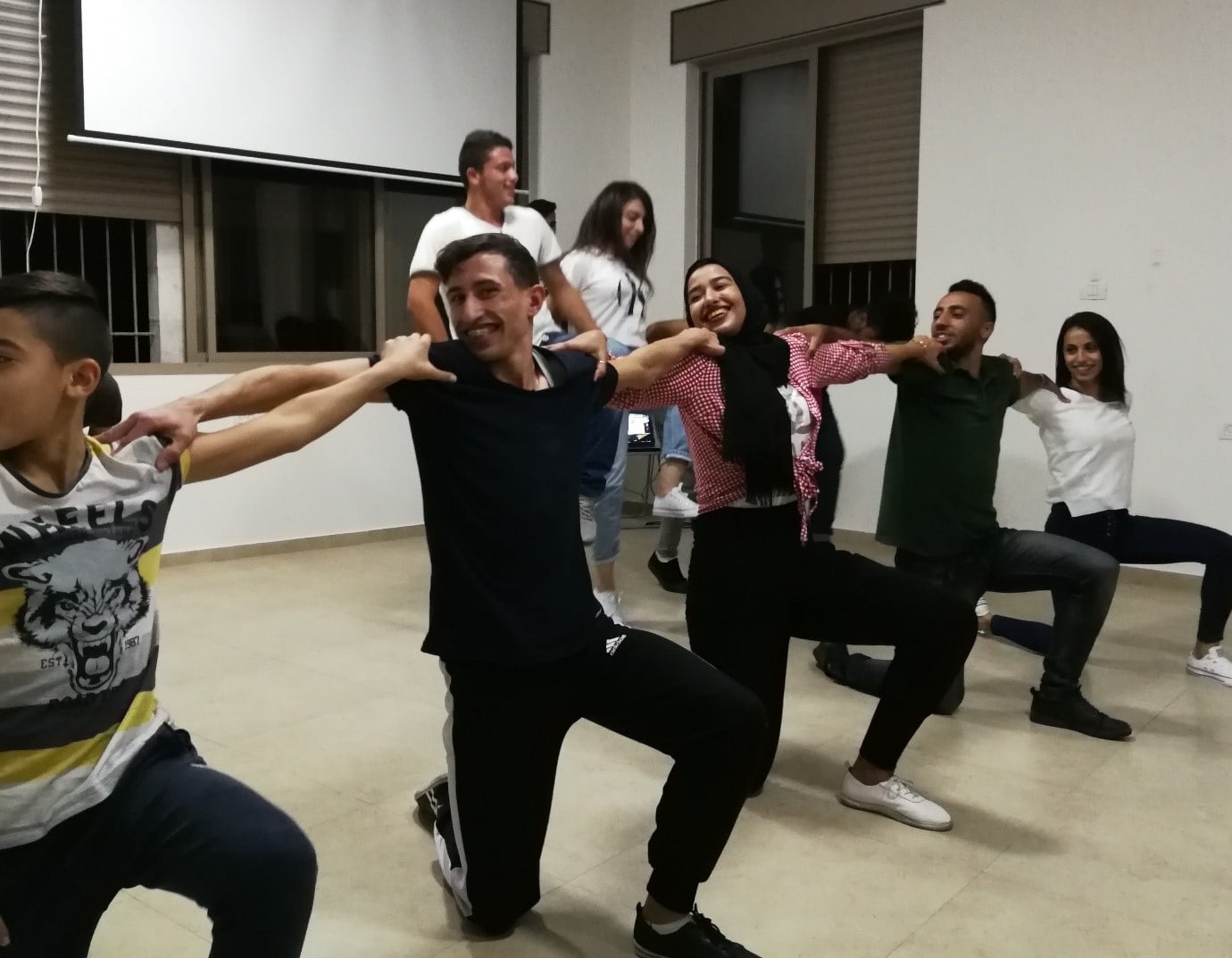‘This is our place to change something in our camps and in our city’
These are the words of 22-year-old Motasem, the lead dancer at the Alrowwad Cultural and Arts Society. The centre is based in the Aida refugee camp in Bethlehem. It was founded in 1998 by Abdelfattah Abusrour, who grew up there.
In Arabic, Alrowwad means ‘the pioneers’ and Abdelfattah says his aim in establishing the centre was to use art, culture and education as a means of resistance to the occupation. He wanted it,
‘to save lives, inspire hope and give our children and young people every possibility to express themselves in the most creative, and non-armed ways.’
The centre has grown to include dance and theatre groups, photography and video workshops, carpentry, a technology lab and library, and workshops on women’s rights and self-defence.
The dance group allows young people to meet, learn new skills, find new ways to express themselves, and share their stories through the traditional Dabke dance.
The group’s most recent production Majnoon laila, is based on a well-known Arabic love story –Abdelfattah describes it as an Arabic Romeo and Juliet. The group has interpreted Majnoon as representing all Palestinians, and their love for the land of Palestine is represented in the figure of Laila. It is a doomed love story that ends without celebration or freedom. The performance was initiated by the French Choreographer Philippe Talard and the performers include six children from Hebron who have experienced detention.
Alrowwaddancers in the Majnoon Laila performance
According to Defence for Children International, around 500–700 children, some as young as 12,are arrested, detained and prosecuted in the Israeli military detention system each year. The most common charge is stone throwing, which can carry a 20-year sentence. Three out of four children experience physical violence during arrest and/or detention, and most are interrogated without legal advice or a lawyer, and without a parent present.
‘If I’m not in Alrowwad I’d be in a prison like most of my friends, or I’d be killed.’
The Aida refugee camp, home to about 6,400 people, sits right next to the separation barrier in Bethlehem. Those who live there experience regular raids by Israeli security forces. Arrests, even of children, are common, and soldiers will sometimes use tear gas, sound bombs and rubber-coated steel bullets. As one dancer put it, ‘If I’m not in Alrowwad I’d be in a prison like most of my friends, or I’d be killed.’

Dancersperforming traditional Dabke dance at the Alrowwad centre
The performances are an opportunity for these young people to share their stories of life under occupation.
‘They tell us laugh, scream, cry, go there, stay there. They keep controlling you and you can’t do anything but when you finish the performance you see yourself as different, like a special person.’
Motasem, dancer
‘It is something from inside, when you hear the music your insides start working, so when you come here, the thing that’s inside you, you can take it out in a nice way.’
Ismael, dancer


